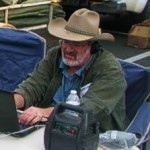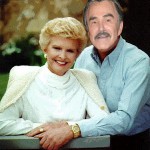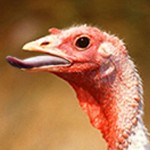Introduction:
- Tonight's episode is proof that LHS is at least as popular as the All-Star Game.
Topic:
- Interview with Bob Finch, W9YA, principal maintainer of yfktest.
- Bob got involved with the yfktest project because he was looking for a logging program like the old DOS program, WR9R.
- His ideal logger did not use graphics, did not require a mouse, and was very easy to learn. yfktest was close, but had a few problems, so Bob began submitting fixes and improvements.
- Over the past year, Bob began submitting code changes and eventually became the principle maintainer of the program, and has made over 150 patches in that time.
- Russ described his problem with the program for Field Day logging. Bob explains that the issue was due to the error checking, and had Russ not tried to enter the signal report into the Class field, it would have worked fine. Russ suggests having a line of text above the fields that provides hints as to what each field should contain. Bob added that to his To-Do list.
- yfktest is written in Perl, so no compilation is necessary to install.
- Bob is working on a version that is completely contained on a USB stick that would be operating system agnostic.
- Rudimentary networking features are in the code now, but disabled. So, it's possible that networking might be a future enhancement.
- Get your copy of the latest version of yfktest by following the instructions in the README.NOW link at bfinch.net.
- Bob then describes another of his interests, rocketry, and is involved in the open source/open hardware rocketry project Altus Metrum.
Feedback:
- Rich, KD0BJT, of the Low SWR podcast writes to tell us of a Field Day logging program called fdlog. It's written in Python and has networking capabilities for multiple stations. Rich also mentions the Java-based logging program JL. Thanks, Rich. fdlog is a graphical Field Day logging program written in Tcl/Tk, but hasn't been updated in about a year.
- Leif, KC8RWR, sends us a link to a series of Youtube video tutorials for GNU Radio, the open source software project for RTL Software Defined Radios. He wonders if he could use an NE602 at the front end of the radio for HF, and use a Raspberry Pi to run GNU Radio. Our hosts discuss this and the Signetics NE602, a balanced mixer and oscillator on a chip.
- Dave, M0DCM, has been catching up on LHS episodes while convalescing. He describes his system for listening, and some experiences with the Ettus SDR, Funcube Dongle, and digital modes with his new Yaesu FT-817ND.
- David, KE0AZ, tells us that the power output of the Ettus transmitter daughterboards is anywhere from 50 to 200 mW.
Contact Info:
- Contact Richard at kb5jbv@gmail.com, Russ at k5tux@lhspodcast.info, or both at the same time at info@lhspodcast.info.
- Listen to the live stream every other Tuesday at 8:00pm Central time. Check the LHS web site for dates.
- Leave us a voice mail at 1-909-LHS-SHOW (1-909-547-7469), or record an introduction to the podcast.
- Sign up for the LHS mailing list.
- Sign up for the MAGNetcon mailing list.
- LHS merchandise is available at the Merch link on Web site. Check out the Badgerwear or buy one of the other LHS-branded items at PrintFection.com/lhs or Cafe Press. Thanks!
- Thanks to Dave from Gamma Leonis for the theme music.
Music:
- "Ancient (The Deepest Sky I've Ever Seen)" by Olga Scotland from the album Castles Under the Water, courtesy of Jamendo.
 A lot of interest has been focused on contest logging of late. We've had several comments and questions on the topic. With the recent passage of Field Day and Hamvention, many hams wanted to know what options there were for Linux. As it happens, YFKTest has been on our radar for some time. In order to get the full scoop, we invited Bob, W9YA, the current lead developer of YFKTest to come on the program and let us know what's going on with YFKTest, what Russ has been doing wrong with it, and where it's headed in the future.
A lot of interest has been focused on contest logging of late. We've had several comments and questions on the topic. With the recent passage of Field Day and Hamvention, many hams wanted to know what options there were for Linux. As it happens, YFKTest has been on our radar for some time. In order to get the full scoop, we invited Bob, W9YA, the current lead developer of YFKTest to come on the program and let us know what's going on with YFKTest, what Russ has been doing wrong with it, and where it's headed in the future.
